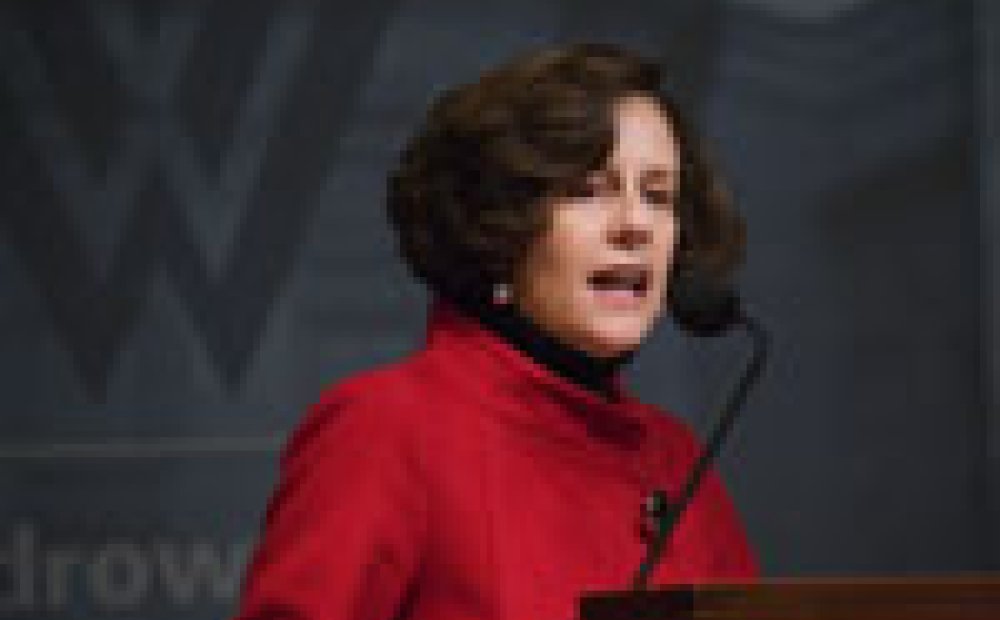A Discussion on President Felipe Calderon's First Year in Office

On January 18, 2008 the Inter-American Dialogue and the Woodrow Wilson Center's Mexico Institute welcomed one of Mexico's most highly regarded political analysts, Denise Dresser, to offer her perspective on the successes and failures of President Felipe Calderón's first year in office. Dresser called Calderón's first year a good beginning, characterizing it as prudent, pragmatic, and measured. She praised his ability to establish the presidential authority he needed after a highly contested election, and acknowledged that his steadfast efforts in building consensus have produced some of the reforms Mexico's previous administration could not achieve. By making the issues of public security and fiscal, pension and electoral reform the vanguard of his agenda, Calderón has demonstrated his capabilities to effectively govern Mexico. Dresser further argued that his political will to tackle drug trafficking and organized crime has propelled him to a unique level of authority that expunges the vision of a paralyzed presidency exemplified by his predecessor. However, she asserted that Calderón's political impetus must confront Mexico's systematically dysfunctional democracy, where a deficient political and economic system deepens poverty, fails to create sustained economic growth or competition, and yields disproportionate allocations of wealth to a very few.
Dresser argued that the electoral reform passed by Mexico's Congress in 2007, with the support of the president, played a major role in decreasing the power of private groups, especially the large media companies, that have typically distorted Mexico's political institutions. She argued that reforming Mexico's Federal Electoral Institute will lessen the negative effects of these groups on the quality of democracy in Mexico. Although members of Calderón's party, the Political Action Party (PAN), feared he was succumbing to pressures from the leftist Party of the Democratic Revolution (PRD), Dresser pointed out that including the PRD in the decision-making process has returned Mexico's leftist party to institutional channels. Furthermore, she noted, the successful agreement among Mexico's three powerful parties on the electoral reform is likely to allow for further collaboration in policymaking in the future. This agreement helped make possible, among other things, a necessary fiscal reform. However, Dresser warned that Calderón's fiscal reforms will not be enough to produce a sustained level of economic growth for all tiers of Mexican society. She commented that while the efforts made in passing the reform were valiant, the new fiscal measures serve only as a springboard for a broader set of changes that are needed. Despite these shortcomings, Dresser noted that the success of fiscal reform sent a concrete message to the market that the Mexican government under President Calderón can and will act.
Dresser pointed out that although Calderón has made progress in passing reforms, he has been forced to make important political concessions, which may have long-term negative consequences for democracy in Mexico. Taking advantage of these concessions, the PRI has actually established itself as the strongest political party in the country and the one indispensable to any political decision. The PRI has used this position to protect some of the least democratic political figures in the country, such as the governor of Puebla. Calderón needs to address the major problems that exist in transportation, telecommunications, energy, and education, but doing this will require challenging entrenched interests. Fighting the root of these problems-- monopolistic powers, crony capitalism, and economic disparity-- will be Calderón's biggest challenge. He would have to show great courage to be able to take on the entrenched interests behind Mexico's most pressing problems, but it is as yet unclear if he has the ability or the inclination to do this.
Hosted By

Mexico Institute
The Mexico Institute seeks to improve understanding, communication, and cooperation between Mexico and the United States by promoting original research, encouraging public discussion, and proposing policy options for enhancing the bilateral relationship. A binational Advisory Board, chaired by Luis Téllez and Earl Anthony Wayne, oversees the work of the Mexico Institute. Read more
